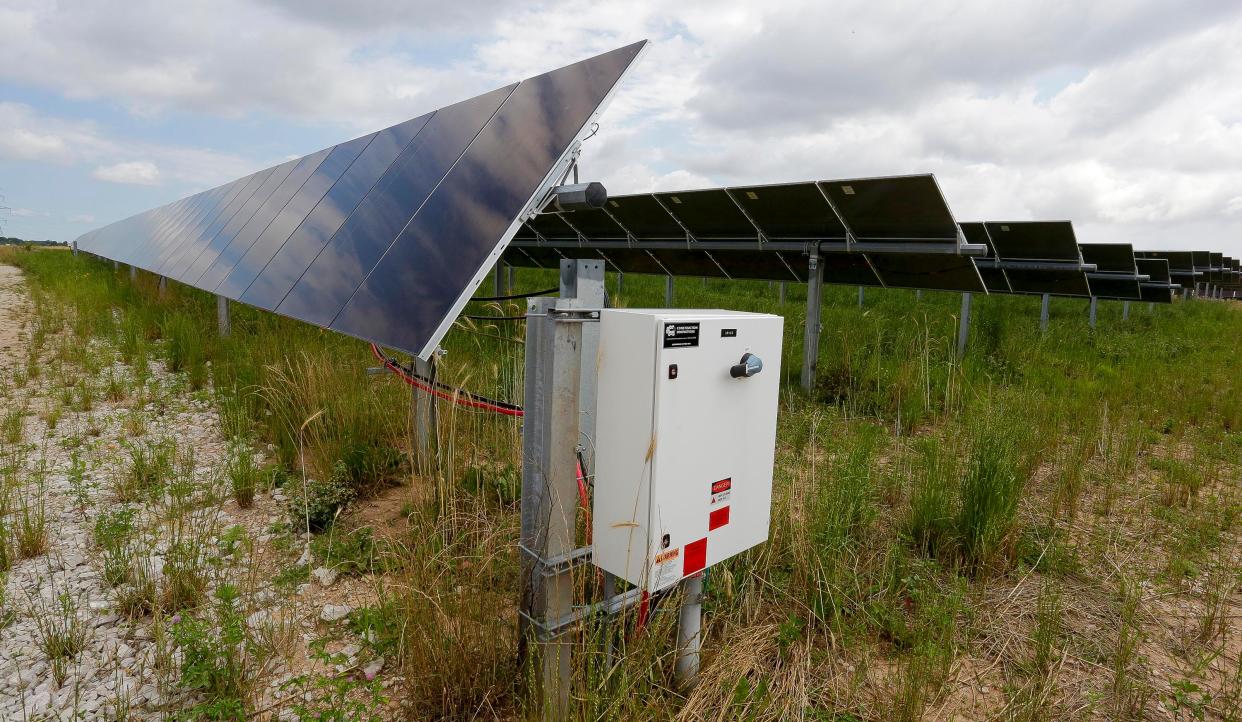Coal and gas plants aren't the solution to power outages. LG&E needs a better way.

Winter Storm Elliott hit the eastern portion of the US from December 23-25, 2022. As the storm moved across Kentucky, it transitioned from rain to ice then snow. In Louisville, temperatures dropped from the mid-40s to sub-zero. In response, millions of households across Kentucky turned up their heat, straining the grid and making it hard for utility companies to provide enough electricity to keep everyone’s power on.
To keep up with demand, utility companies, like LG&E and KU, forced power outages and left people without power in dangerous winter weather conditions. Now, two years later, the Public Service Commission is investigating the cause, impact, and ultimately the inability, to provide electric services at the level demanded.
The Public Service Commission held a hearing on May 23, 2024, which included representatives from LG&E, Kentucky Utilities, Kentucky Industrial Utility Customers, Inc., Kentucky Coal Association, the Attorney General’s Office, Sierra Club, and Joint Intervenors.
The Joint Intervenors included the Metropolitan Housing Coalition, Kentuckians for the Commonwealth, Kentucky Solar Energy Society and Mountain Association. The outcome of this hearing will be used in LG&E/KU’s upcoming Integrated Resource Plan filing in October 2024, in which LG&E/KU will examine both their energy demand and supply and must identify any risks that could prevent them from meeting their customers’ long-term energy needs at reasonable costs.
LG&E must improve systems and communications
The Joint Intervenors believe that in their upcoming IRP, LG&E/KU should fully and fairly evaluate storage, renewables, demand side management (including robust home energy efficiency programs), transmission, and joining a Regional Transmission Organization to improve the reliability and resilience of the LG&E/KU system. We also implore LG&E/KU to improve their public notification and appeal process, as they failed to make a timely public appeal to reduce load during Winter Storm Elliott.
Finally, Joint Intervenors are concerned that the Winter Storm Elliott investigation will be used to justify the production of new coal/gas plants to “stabilize” the grid, perpetuating a false narrative that fossil fuels are the only “reliable” resources. Such an endeavor would be costly, and could result in increased rates for customers. In fact, according to a recent North American Electric Reliability Corp. (NERC) report, coal power plants have experienced more unplanned outages than other power sources in the past three years. Now, more than ever, it is crucial to protect Kentuckian’s health and well-being by transitioning to more stable renewable energy sources.
With a changing energy landscape and an outdated utility business model, we need to ensure that the Public Service Commission, along with our energy providers, protects the public interest in terms of health, affordability, and resiliency, and begins the renewable energy transition so that no community experiences rolling blackouts again.
Sarah Pierce is the Housing and Energy Affordability Program Coordinator for the Metropolitan Housing Coalition’s program EveryHome. By advocating for equitable policies, and fostering community involvement, EveryHome strives to create positive change and ensure that everyone has access to safe, affordable, and energy-efficient housing.
This article originally appeared on Louisville Courier Journal: Improve the reliability and resilience of the LG&E, KU power system

